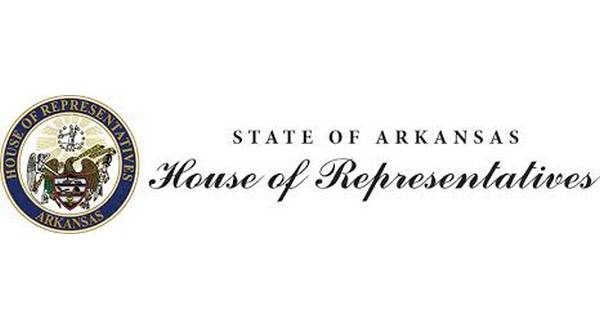
A bill that aims to require pornography website operators to verify that users in Arkansas are at least 18 years old before allowing access to their site passed the House on Tuesday.
Senate Bill 66, by Sen. Tyler Dees, R-Siloam Springs, received a vote of 77-4 with 14 members voting present. The measure returns to the Senate for concurrence on amendments.
According to the Arkansas Democrat-Gazette, house sponsor Rep. Mindy McAlindon, R-Centerton, said the bill is needed to protect children from pornography. While she said parents should monitor their children’s online activity, McAlindon contended lawmakers are responsible for setting guardrails to limit minors’ exposure to pornography.
“Children who are repeatedly exposed to porn develop distorted views of relationships and sexuality that go on to impact their adult relationships and even their ability to hold jobs,” McAlindon told House members.
McAlindon said major pornography sites have begun to contract with third-party companies to verify users’ ages after Louisiana enacted a law and other states have also pursued legislation that would require them to do so.
The bill would require commercial entities to use a reasonable age verification method before allowing users to access a website where more than a third of the material is deemed “harmful to minors.”
Verification methods allowed under the bill include digitized ID cards, a government-issued ID or any commercially reasonable age verification method “that holds an Identity Assurance Level 2.”
Rep. Stephen Meeks, R-Greenbrier, said that while he appreciated the intent of the bill, he was concerned it could lead to identity theft.
“Are we creating an excuse for these websites that may and many times are not located in our country to put up a portal requiring an Arkansas citizen to give their personally identifiable data,” he said.
He also noted that if enacted the state law would not apply to businesses located outside of the state.
McAlindon said other online services, including banking, could leave users vulnerable to identity theft. She noted the bill would allow users to present a form of ID other than a drivers license.
The bill contains a section that would bar commercial entities or third-party vendors from retaining any identifying information used to verify the age of the user. Meeks noted that Arkansas would not be able to enforce this provision on businesses operating outside of the state.
Rep. Ryan Rose, R-Van Buren, spoke for the bill, saying it was needed to “protect children from having their minds damaged and warped.”
Under the bill, material that is harmful to minors is defined as any “material that the average person, applying contemporary community standards, would find, taking the material as a whole and with respect to minors, is designed to appeal to, or is designed to pander to, prurient interest.”
The legislation specifically points to “descriptions of actual, simulated, or animated displays or depictions of … nipple of the female breast, pubic hair, anus, vulva, or genitals; touching, caressing, or fondling of nipples, breasts, buttocks, the anus, or genitals; or sexual intercourse, masturbation, sodomy, bestiality, oral copulation, flagellation, excretory functions, exhibitions of sexual act, or any other sexual act.”
The bill also would apply to material that as a whole lacks serious “literary, artistic, political, and scientific value for minors.”
Rep. Andrew Collins, D-Little Rock, said that since the bill separates elements in its definition of material harmful to minors with an “or” rather than an “and,” the bill could apply to any material that only lacks serious “literary, artistic, political, and scientific value” for minors.
“That is so broad,” he said. “I don’t think anyone wants to say — well maybe some do — that Spongebob you have to log in and be over 18.”
McAlindon said she had reviewed the change Collins proposed and said the attorney general’s office had determined it was not needed.
If the bill is enacted, an entity that violates provisions would be “liable to an individual for damages resulting from a minor accessing the material harmful to minors, including court costs and reasonable attorney’s fees as ordered by the court.”
WebReadyTM Powered by WireReady® NSI










